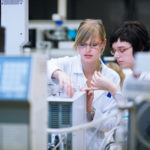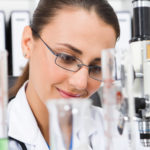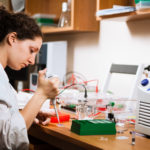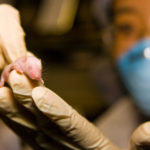
Welsh Ambulance Service moves its researchers to new base at Swansea University Medical School
The Welsh Ambulance Services NHS Trust (WAST) has moved its research and innovation offices to the Institute of Life Sciences at Swansea University Medical School, further strengthening the links between the two teams (Swansea University, 2017). WAST has many national and international research and innovation partners, but its longstanding relationships with Swansea University have given … Continue reading Welsh Ambulance Service moves its researchers to new base at Swansea University Medical School

UK’s first artificial heart pump due to begin trials in 2018
Scientists have said the UK’s first artificial heart pump has moved a step closer to being used on patients (BBC News, 2017). The heart pump has been developed at Swansea University’s Institute of Life Science 2 by Calon Cardio, and clinical trials are due to begin in late 2018 with the aim of a full … Continue reading UK’s first artificial heart pump due to begin trials in 2018

Work starts on Llanelli Wellness and Life Science Village
Work has officially started at Delta Lakes in Llanelli ready for the £200m Wellness and Life Science Village (MediWales, 2017). Initial ground works are now underway to support the “once in a lifetime” future development of the Llanelli Waterside Joint Venture land. Alun Griffiths (Contractors) Ltd has been appointed to carry out the site preparation … Continue reading Work starts on Llanelli Wellness and Life Science Village

Researchers call for better quality reporting of asthma diagnosis and events
Researchers from Swansea University Medical School and the Asthma UK Centre for Applied Research have today cautioned that improved and consistent reporting of studies is needed in order to answer important questions about asthma (Swansea University, 2017). Nearly 10% of the UK population has a recorded diagnosis of asthma, accounting for almost 100,000 hospital admissions … Continue reading Researchers call for better quality reporting of asthma diagnosis and events

Project to develop graphene sensor for quicker diagnosis of hepatitis
Researchers from institutions in China and the UK, including Swansea University, are collaborating on a project to develop a graphene-based sensor, which aims to provide an easy, low cost way of diagnosing hepatitis on the spot (Swansea University, 2017). BIOVICI, developing the next generation of point-of-care (POC) diagnostic devices, brings together the National Physical Laboratory … Continue reading Project to develop graphene sensor for quicker diagnosis of hepatitis

Plans for a new wellness centre in Swansea city centre
Swansea Council, in partnership with Abertawe Bro Morgannwg University Health Board (ABMU), has commissioned specialist healthcare advisors, IBI Group, to work on the feasibility of a new city centre wellness centre that aims to address future trends in healthcare (ARCH, 2017). In a move to place as much emphasis on people’s wellbeing as on healthcare, … Continue reading Plans for a new wellness centre in Swansea city centre

Hunger hormone appears to promote the growth of new brain cells
A stomach hormone that stimulates appetite seems to promote the growth of new brain cells and protect them from the effects of ageing, and may explain why some people say that fasting makes them feel mentally sharper (New Scientist, 2017). When ghrelin was first discovered, it became known as the hunger hormone. It is made … Continue reading Hunger hormone appears to promote the growth of new brain cells

Swansea University’s smart bandages to be trialled “within 12 months”
Swansea University scientists have said bandages which can detect how a wound is healing and send messages back to doctors could be trialled within the next twelve months (BBC News, 2017). The bandages would use real time 5G technology to monitor what treatment is needed and also keep track of a patient’s activity levels. The … Continue reading Swansea University’s smart bandages to be trialled “within 12 months”

Study finds volunteering reduces the risk of dementia
A Swansea University academic is part of a team that has discovered that individuals who decide to retire from the workforce, but start to volunteer instead, report substantially less cognitive complaints and are far less likely to be diagnosed with dementia compared to retired workers who do not volunteer (Swansea University, 2017). Dr Martin Hyde … Continue reading Study finds volunteering reduces the risk of dementia

Moleculomics helps get effective drugs to market quickly and cheaply
Getting better drugs to market faster, and at a fraction of the cost, is a step closer thanks to technology for speeding up the testing process, which is being developed by a Swansea University spin-out Moleculomics (Swansea University, 2017). Moleculomics has been developing comprehensive platforms of computer generated models for protein structures in the human … Continue reading Moleculomics helps get effective drugs to market quickly and cheaply








